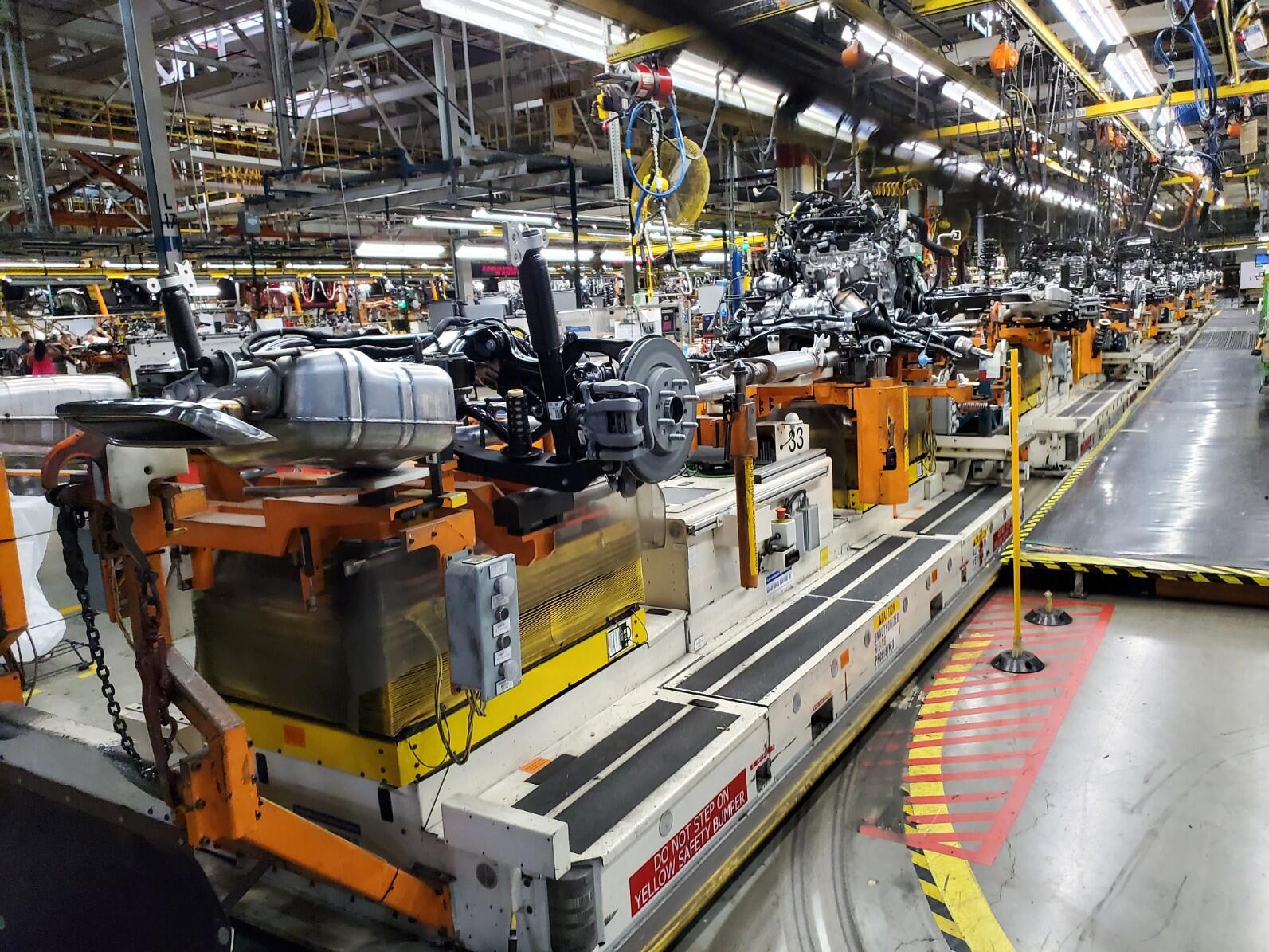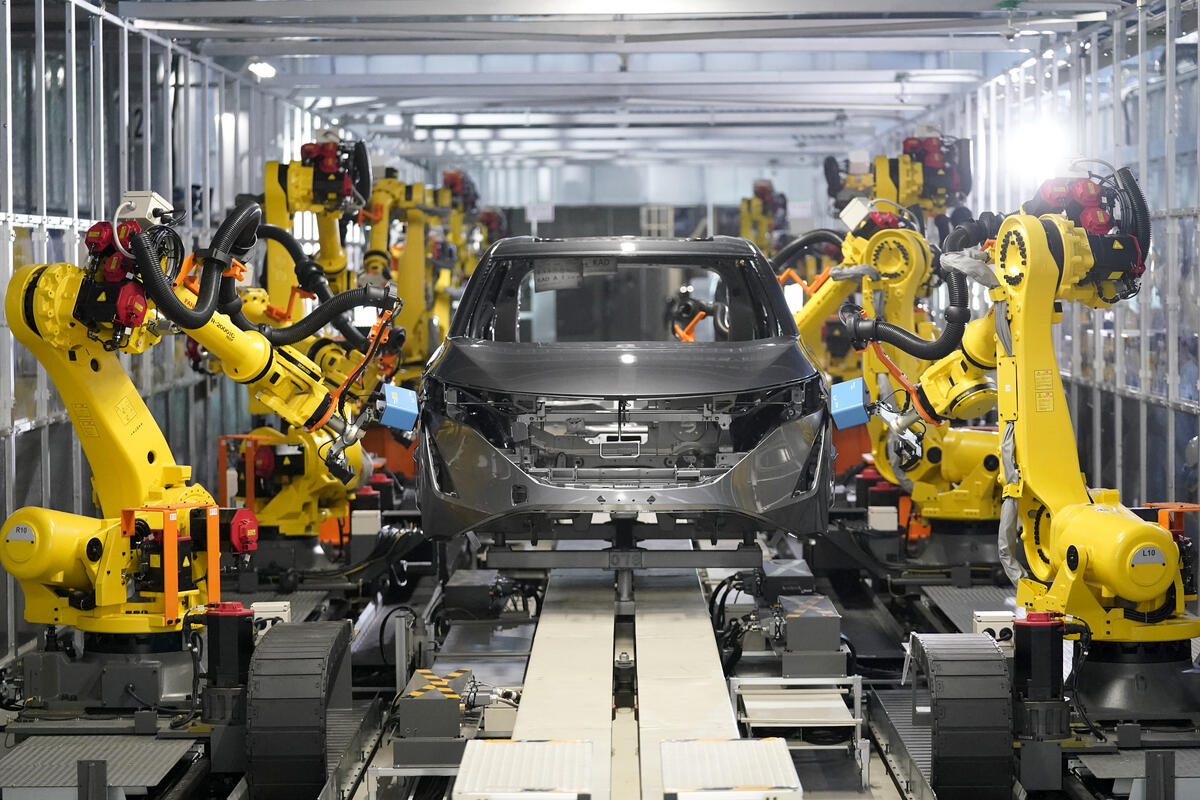The Trump administration’s decision to impose a 25% tariff on the bulk of America’s trade in autos and automotive parts has caused significant disruption to the global automotive industry, according to government officials and industry analysts worldwide.
Despite Trump's recent softening of the proposed auto tariffs, the moves have raised concerns of isolating the American auto market and potentially prompting retaliation from the nation’s main trading partners.
While other countries might increase trade among themselves to compensate for lost United States sales, the potential impacts have the industry in a state of high alert.
Officials point out that one potential sign of flexibility in the administration’s approach is that the auto tariffs were not added on top of the blanket 10% tariffs on all goods.
In contrast, higher “reciprocal” tariff rates were imposed on other jurisdictions — 20% for the E.U., 24% for Japan, 25% for South Korea, and 10% for the U.K.
Although USMCA partners Canada and Mexico escaped these higher reciprocal tariffs, they still face the new auto and auto parts duties, with Canadian and Mexican exports enjoying a lower 12.5% rate for USMCA-compliant vehicles that contain at least 50% American content.
In addition to the tariff structure itself, industry analysis from Cox Automotive indicates that the 25% tariff will affect nearly 80% of vehicles priced under US$30,000, including popular models like the Honda Civic, Toyota Corolla, Chevy Trax, Nissan Sentra, and Honda HR-V.
Further analysis from the Center for Automotive Research (CAR) has estimated that 25% tariffs on automobiles and parts could result in a $107.7 billion cost increase for all U.S. automakers, with Ford, General Motors, and Stellantis bearing $41.9 billion of that burden.
Automakers are adopting varied strategies to cope with the impact. Some are launching aggressive sales and discount programs, while others are instituting price assurance programs, pausing production, or even holding vehicles at border points as they determine how best to navigate the new tariff rules.
Among these measures, Ford has taken the initiative to seize what it calls “opportunity in the chaos” of U.S. President Donald Trump’s tariffs. In a bid to support its U.S. operations, the company has introduced an employee pricing program called “From America, For America” aimed at reassuring consumers and boosting sales during a time of economic uncertainty.

Ford’s initiative is particularly notable given the historical controversies surrounding programs that compress dealer margins by offering vehicles at or below invoice prices.
Stock markets have also reacted sharply to the new tariffs. Global automotive manufacturers posted significant declines across the board, with Stellantis experiencing an 11.1% drop in its share price and Mercedes-Benz following with an 8.27% decline.
General Motors and Honda reported losses of 6.14% and 5.69% respectively, while Volkswagen, Ford, and Tesla also saw notable declines.
Suppliers, too, have been severely impacted, with American Axle & Manufacturing Inc. and Dana Inc. losing around 14-15% of their value.
Ford
Ford has responded to these challenging market conditions by taking measured steps to support its domestic operations. The company has chosen to focus on optimising its existing U.S. production facilities rather than moving production quickly, even as input costs surge.
The Q1 2025 sales release highlights the pressure on margins while underlining a commitment to long-term operational stability. Ford’s leadership has communicated reassurances to employees and consumers alike, reiterating the availability of a robust inventory and a broad range of vehicle options at a time when uncertainty reigns.
Ford Motor said price hikes on its vehicles could be in store for customers this summer if the Trump administration's 25% tariffs on automobiles and auto parts imported to the U.S. remain in effect.
The company addressed the price hikes in a memo sent to dealers in early April, a Ford spokesperson confirmed to CBS MoneyWatch.
General Motors (GM)
General Motors manages a delicate balance between growth and caution. Despite reporting a 17% increase in Q1 sales - driven by strong demand for trucks, SUVs, and electric vehicles - the company remains vigilant about the risks posed by tariffs.
GM is prioritising internal efficiency improvements and actively engaging with policymakers to seek potential relief from these levies.

Toyota
For Toyota, the impact of the tariffs has been immediately felt in market sentiment. Following the imposition of the tariffs, Toyota experienced a notable decline in share prices, reflecting investor concerns about rising costs and disrupted supply chains.
The Japanese automaker is actively reevaluating its global production strategy to reduce tariff exposure while maintaining its competitive edge.
Toyota’s adjustments come at a time when pre-tariff pricing is prompting buyers to accelerate their purchases in an effort to avoid future price hikes.
Jaguar Land Rover
Jaguar Land Rover has not been immune to tariff fallout. The British automaker has announced a pause in shipments of its vehicles to the U.S. as it reassesses its long-term strategy under the new trading terms.
Although the U.S. remains an important market for Jaguar Land Rover’s luxury brands, the current environment has forced the company to temporarily halt exports while it develops mid- and long-term plans.
Stellantis
Stellantis, the parent company of Jeep, Dodge, RAM trucks, and Chrysler, is one of the most affected automakers. In response to escalating cost pressures and declining market sentiment, Stellantis has temporarily halted production at some of its North American facilities and announced the temporary layoff of 900 workers at plants in Michigan and Indiana.
Nissan / Infiniti
Nissan, along with its luxury division Infiniti, has responded decisively to the challenges posed by the tariffs. Infiniti has indefinitely halted crossover production in Mexico, a move that directly reflects the pressure of increased import costs on its operations.
This decision highlights the urgent need for a reconfiguration of production strategies and supply chain management in an environment where tariff-induced cost escalations are reshaping industry practices.
Kia
Unlike Hyundai and Genesis, which operate under the same corporate umbrella, Kia has not yet announced any plans to hold off on raising new-car prices over the next two months.
In a statement, Hyundai Motor Group emphasised its commitment to the U.S. automotive market:
“Hyundai Motor, including Kia, Hyundai, and Genesis, remains committed to the long-term growth of the U.S. automotive industry through localised production and innovation. With nearly four decades of investment in America, including a new $21 billion commitment, Hyundai Motor Group is expanding U.S. production to 1.2 million vehicles across Alabama, Georgia, and our new Metaplant in Savannah, making the majority of our U.S. sales locally built.
"Hyundai Motor Group and its subsidiaries employ more than 570,000 people in America and will create and support more jobs from its latest investment.”
Broader Industry Dynamics
Beyond the individual responses of major automakers, the new tariff regime is reshaping the entire automotive value chain.
U.S. import tariffs are expected to reset production and sourcing models on a global scale, a shift that S&P Global Automotive Insights predicts will have lasting impacts on the industry.
At the same time, U.S. automakers are making a concerted effort to influence policy. Bloomberg reports that companies such as Ford, GM, and Stellantis are lobbying to have certain low-cost car parts excluded from the tariffs, arguing that these measures could otherwise have catastrophic effects on their operations.
Market data reinforces the deep impact of these policies, with Reuters warning that Japan could lose up to $17 billion in car exports if tariffs persist.
South Korea is also set to provide an additional US$2 billion in aid to its auto industry, offering financial assistance, tax cuts, and consumer discounts to cushion the impact.
Furthermore, domestic consumers may soon bear the brunt of rising vehicle prices, a scenario that could have profound consequences for working-class communities across America.
The competitive landscape is also shifting as buyers rush to lock in pre-tariff prices. Early indicators show that sales of vehicles from brands like Hyundai and Toyota have surged, partly driven by consumer efforts to beat anticipated price hikes.
In addition, luxury brands such as Ferrari and BMW are already taking steps to manage price increases, with some models facing significant hikes while others are shielded from the full impact of the tariffs.

Conclusion
The Trump administration’s 25% tariff on imported autos and auto parts are catalysing profound changes throughout the global automotive industry.
With concerns over retaliatory measures and international trade reconfiguration, automakers are deploying a range of strategic responses - from optimising domestic production and launching consumer-focused pricing programs to pausing exports and reconfiguring supply chains.
Major automotive brands are now scrambling to adapt to a landscape defined by uncertainty and rapid change.



